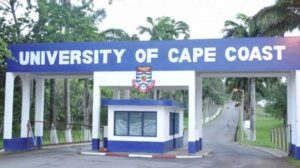Knust Human settlement planning

This is a four-year program leading to the award of Bachelor of Science (B.Sc.) Degree in Human Settlement Planning. The main objective of this program is to train the professional manpower required for the planning and management of the growing urban and rural settlements in Ghana. Essentially, the graduates are to be prepared to understand, appreciate and interpret policies as they manifest in space and behavior patterns in response to settlement development.
The shortage of Settlement Planners in the country, in general, is evident from the nature of settlement management problems, faced by the Metropolitan, Municipal, and District Assemblies. It is in response to this need of the country within the context of Decentralization and Local Government that the Department of Planning has mounted this program. As a dynamic training institution, being responsive to the changing needs of the country is the Department’s priority.
Objectives
The B.Sc. Human Settlement Planning Program aims at the training of requisite manpower to plan and effectively manage human settlements. Specifically, the objectives are to train a cadre of physical planners who are capable of:
1) Using modern technology and equipment in the planning and management of human settlement in the country;
2) Understanding and appreciating the complexities and dynamics of human settlements and their interrelationships;
3) Developing appropriate strategies to manage human settlement problems which arise from the growth of settlements; and
4) Promoting techniques of effective political-technical interaction and community participation in settlement planning.
Duration and Structure
The undergraduate Programme in development planning has a four-year duration. It consists of coursework as well as oral examinations in Workshops and a Special Study (Research Project). The four years of the Programme are divided into two semesters per year with a total of approximately 40 courses offered under the Programme. (For the course details and structure refer to Appendix 1). A minimum of 135 credit hours is required for graduation. It is appropriate to intimate the fact that the undergraduate program in development planning represents one of the essential and fundamental academic activities in the Department and creates the opportunity for further specialization at the postgraduate level.
Vacation Training
Traditionally, students of the Department are regularly posted to development and planning-related institutions for vacation training attachments. These efforts are made because the Department wants to train its students to meet the challenges of development in Ghana and Africa and therefore it becomes very necessary to expose them to the practical realities and ramifications of development issues during the training period.
The posting of students for vacation training purposes for each year is undertaken with the ultimate aim of providing opportunities to all students in the Department. The basic rationale and strategy for posting are premised on ensuring that participating organizations could mutually benefit from this form of collaboration with the Department. This is because the students have gone through at least one year of training and are well-positioned to effectively add value to the operations and planning efforts of the participating organizations while at the same time the students gain practical skills in office work and development management.
In this quest, students are attached to development planning-related organizations and agencies mostly during the long vacation for at least six weeks to attain practical experience. Such internship takes place in sector ministries, non-governmental organizations, and the private sector.
Examination and Requirements for Graduation
Based on University rules and regulations, the Department operates a system of continuous assessment, and candidates are exposed to a variety of tests in course work and oral examinations on workshops as well as grades for the Special Study.
On successful completion of the Programs, the B.Sc. (Development Planning) Degree is awarded in the following grades on
the recommendation of the Board of Examiners:
- First Class (CWA from 70—100)
- Second Class Upper Division (CWA from 60—69)
- Second Class Lower Division (CWA from 50—59)
- Pass (CWA from 45—49)
Job Opportunities
Graduates are usually absorbed by the main integrative planning agencies. In addition, they are also qualified to provide development planning input to sectoral planning agencies such as health, education, agriculture, and transportation. Graduates are now increasingly securing employment with non-governmental organizations, District Assemblies, development research units, and special purpose agencies among others.
The figures provided below are subject to change or to say, it defers annually per academic year
BSC. Human Settlement Planning in KNUST Cut-off Points
| Year | Cut |
|---|---|
| 2016 | 18 |
| 2017 | 15 |
| 2018 | 17 |
| 2019 | 16 |
| 2020 | 15 |
| 2021 | 15 |
BSC. Human Settlement Planning in KNUST Administration Requirements
(These are the requirements that guarantee you being considered for this program)
- Core Subjects: Credit passes in English Language, Mathematics, and Integrated Science. Elective Subjects: Credit passes in Geography and Economics, and any One (1) of the following Subjects: Government, Elective Mathematics, Technical Drawing, Graphic Design, General Knowledge in Art, and History.




